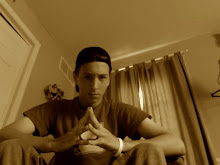I have been reading, I just haven't set aside time to post about it.
Stephen King's "On Writing"
This is a beautifully authentic love letter concerning the pursuit of writing. It all begins as a reader, knowing what you like to read, shamelessly copying from your favorite authors while you develop your own voice. It is like "Four Small Words," an introduction by Neil Gaiman to the beginning of the 2010 anthology "Stories." Neil wrote about his personal fascination with reading from his youth, a book becoming his constant companion. A lady asked Mr. Gaiman what quote he would recommend for an inscription on the wall of a library's children's section. At first, he thought that the library's wall would be best served blank and unspoiled by an engraving. When Gaiman reconsidered, searching for his own list of best quotes, he settled on these four small words that every writer longs to hear from his audience - "And then what happened?..."
As I read that introduction, I looked up and thought, "Neil, you are correct, that is exactly how I feel!" It is a simple and short question, but poses no end to possible answers. That question engages the reader's interest and the writer's inspiration (and continued employment).
Another one of my favorite book related quotes comes "Shadowlands," a film about the later life of C.S. Lewis. One of Lewis' students steals books from a bookshop, and Lewis confronts his pupil regarding his actions. He apologizes sheepishly to Lewis, and explains his situation. The student has not the funds to spare for his habit, but craves unread books like a junkie with psychoactive substances. His hands shake, and he can hardly read the pages. The student reads throughout the nights and sleeps through his classes during the day. His quote sticks out to me, "We read to know that we are not alone."
Books connect the writer to the reader, impart knowledge and concepts. Books are portal's into the writer's mind. (Mine is a rather messy library by the way - you receive information eventually, but you, my reader, will have to wade through a lot of smaller bits before you reach the desired byte. [sorry, its been a while; that was a pathetic attempt at computer humor...]).
To return to the original subject of King's book - Grammar and vocabulary are your writing toolbox. The more tools you learn to master, the more tasks you can accomplish in building concepts in your audience's minds. Some young writers have an extensive toolbox through their education, but a limited knowledge of how to properly implement their equipment. Students sometimes use an ancient saw's old teeth to shape their thoughts, rather than experiment with different means of cutting to the heart of their intended final design.
King stresses the need of an ideal reader - write your work with a fellow reader's tastes in mind. This person needs to know you well and be comfortable with pointing out when your draft's proverbial "fly" is open. You should be able to take the critique and improve on your faults. In my college writing course this semester, I submitted my work to my fellow students to review. There was one girl in particular who didn't care for my styling and dissected my papers with a blue highlighter. I needed that other perspective, however, and am immensely grateful for her presence in class. I figured that if I was able to pass her standards and peeves in my work, my paper would avoid offending the tastes of others with similar hang-ups. I am quite aware that I cannot please everybody, but I also realize that I always should be open to improvement.
King's book is a down-to-earth resource for writers young and old. The part that encouraged me the most was his admitting that he doesn't plan out his plots. He has only a vague idea or concept that starts King down the trail of "What if?" As the story progresses, King's characters develop their own personality and voices.
After reading this autobiography, I have started his novel "Misery." So far, my favorite portion was the mental image of Paul Sheldon capering about his hotel room delighted that his cash cow (but personal pain) character Misery Chastain finally decided to die. The idea of a Sheldon as an instrument being supplied by a mysterious cosmic story pipeline of inspiration and his apparent surprise and rejoicing in the death of a wildly popular, but uninspired character, made me smile inwardly in sympathy. That is how I write - this stream of consciousness would not fit on Twitter's 140 characters though, so I cannot afford to do such things anywhere but here.
Next review - "Looking For Alaska," by John Green
Most of what I have to say about this work is that it is the closest I have seen to a modern Catcher in the Rye. The author, Green, likes strong female leads, overweight best friends, swearing, and deep thinking, misunderstood, and/or unsociable protagonists. Given that I didn't much like Catcher in the Rye ( I know, shame on me for disliking a "classic"), this comparison is not high praise, but this book is better than "Will Grayson. Will Grayson."
The part I dislike the most about this book is that it ends sadly, its tone put me in a depressed frame of mind. Green is a skillful writer in that he hooks me to continue to the end, but this private school tale of "new kid's arrival, integration into a prank war with rich vs. smart, and path to addictions." is not my cup of tea. Read this if you desire to theorize about unresolved mysteries and want to sulk in a morose frame of mind. (Not that it is without humor, but its twist is nevertheless sobering to the budding cigarette/alcohol addicts upon which the story is centered.)
"Ring of Solomon: Bartimaeus Prequel" by Jonathan Stroud
I love this author, and this series showcases the sardonic wit and arrogance of a captive Spirit. Bartimaeus is a rogue djinni in a world ruled by corrupt and greedy magicians who summon entities from the "Other Place" to carry out their bidding. Needless to say, Bartimaeus isn't thrilled about this structure that binds him to the will of a mortal human. What sets Bartimaeus apart from his fellow spirit slaves is the streak of witty banter, cheek, and insults to which he subjects his "masters." While other spirits accept their fate, and/or sycophant up to their summoners, hoping to earn dismissal back to the spirit realm, Bartimaeus unloads on humans with the experience of an immortal entity upon an arrogant magician. The structure of magicians running the show is clearly shown to be unnatural and awkward for our dimension.
There is a hierarchy in the spirit world - imps (weak and simple, are used for play toys and snacks by higher spirits.); foilots (only slightly higher, and are usually puffed up and proud of the fact. These make up the servant class of the magicians); djinni (have a decent amount of can do performance, provided that they are given specific instructions.); afrits (rather nasty entities, only strong magicians hold the power to summon them as servants. Djinn don't stand a chance of overcoming them in battle, and hate the fact); marids (rarely visit our dimension - these are the lords of the "Other Place," wielders of great power. Only the best, brightest, and mightiest magicians may harness them.); as well as other, unspoken beings of unfathomable strength which rest in the bowels of "Other Place."
For spirits, there are seven planes of reality on earth, the first is seen by humans (and worms, insects, mice, and other stupid and weak creatures), the second is accessible to cats, and imps are limited to the height of the third and fourth, foliots may reach six in sight, djinni - seven. Seventh is special, all guises and shapes fade on this level. Spirits of djinni level and higher hold the ability to shapeshift into any form they might imagine. Djinni also employ a range of magical attacks and defenses such as Detonations, Convulsions, Shields, Plasmas, Infernos, Compression.
(More information on Wiki! http://en.wikipedia.org/wiki/Magic_in_Bartimaeus)
My main point is that this series is exceedingly clever, witty, and amusing to me. Bartimaeus keeps me entertained with his antics and sly schemes. In this book, Bartimaeus is a slave of a magician in Solomon's Court of 13. These 13 magicians are the most powerful in the world, but all must serve Solomon and his Ring. This ornamental artifact acts as an instant portal to "Other Place," a mere touch may summon any of 20,000 Spirits to meet the wearer's desires. A turn of the Ring summons a Spirit named Uraziel, an entity above the level of a Marid. Bartimaeus is roped into a foolhardy mission to steal the Ring by a young Sheban royal guard, whose country is threatened to be destroyed within a month unless a tribute is paid to Solomon. I wasn't sure whether I would like how Solomon was portrayed in the work, but it turns out that I understood his position a little better by the end. Highly recommended read.
"Artemis Fowl: The Atlantis Complex." by Eoin Colfer
Mr. Colfer is pushing it with this book, highly unrecommended -"Artemis is subject to a magical mental disorder with extreme paranoia and pattern tendencies!" The villain is more delusional and stubborn than actually evil. He has a simple desire to reunite with his mortal wife... and destroy an entire fairy city as a revenge against those who framed him to serve a life term in prison. This book is simply not worth the effort - Time Paradox was a decent send off, to revive the series here smells of a desperate attempt to whip a cash cow, resulting in a dead horse...
"The Search for Wond-La" by Tony Diterlizzi.
This is a charming book, mainly because of the fact that each chapter starts with an illustration based on green, yellow, grey, black, and white. (Very appealing to my tastes, I love green and black artwork, quite lovely). It is quaint and whimsical, imaginative, and sympathetically amusing. (In the naivete of the main character, we discover the strange new world through her eyes.) I expected nothing less from a co-author of the bestselling "Spiderwick Chronicles" series. Wond-La's ending is a little unexplained, but I saw its potential coming from a mile away. Not hard to figure out, but it is a creative journey none the less. I liked the concepts and elements more than the story itself.
It concerns a young girl raised by a robot to survive. However, their underground home is attacked by a bestial bounty hunter, forcing an early exit into the real world. The young Eva Nine is unprepared for the weird and wild world of animal-eating-plants and otherworldly creatures who inhabit her home planet. The name of the book is derived from a fragment that the young girl, Eva Nine, finds in her home - it is a picture displaying a girl, an adult, and a robot walking hand-in-hand. The only discernable caption on the fragment are the letters "Wond - - - La." Eva dreams of discovering this paradise of peace, and sets off on a pilgrimage to find its location.
Eventually More
Reviews will be published soon
(And better haiku)


